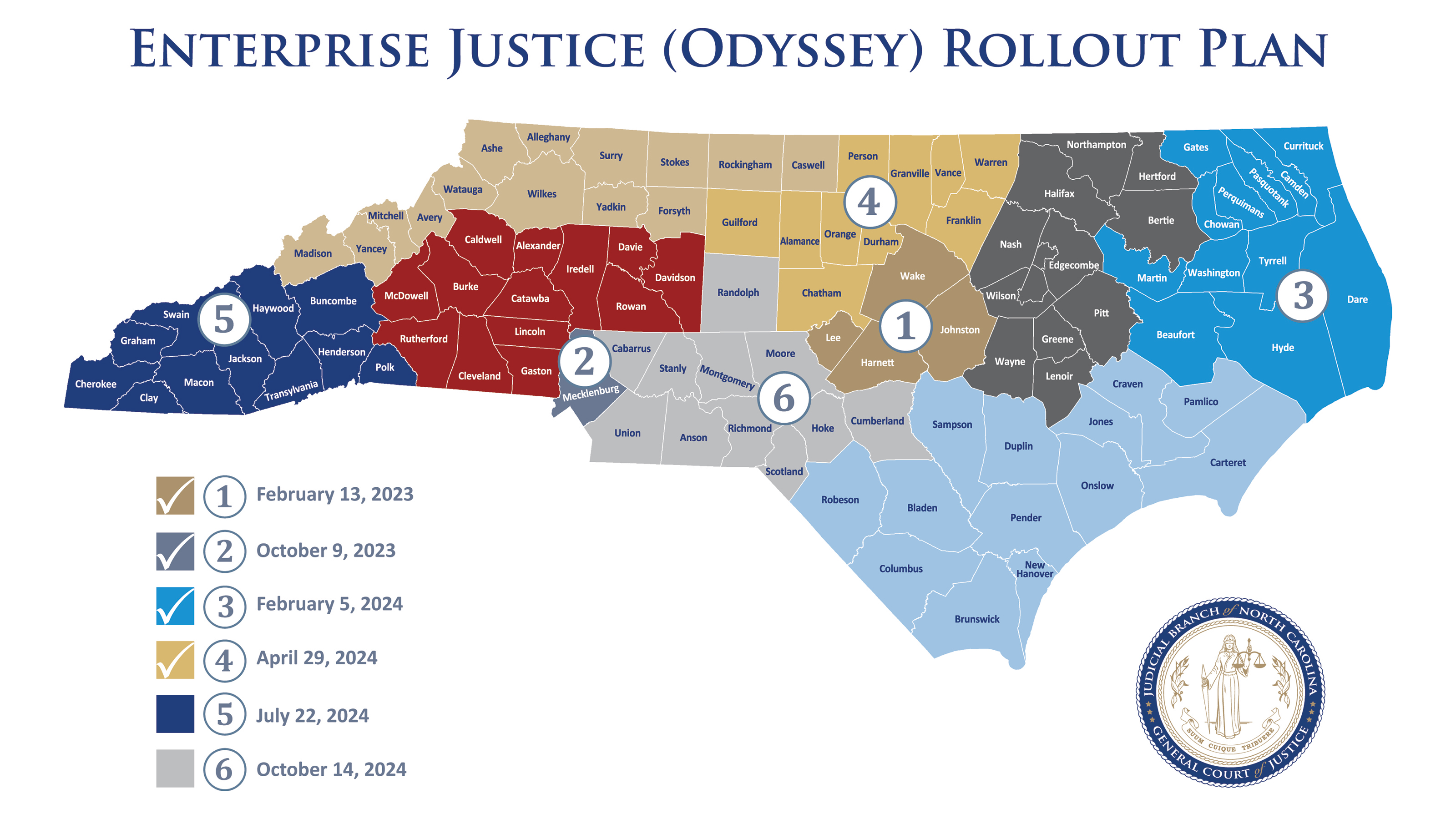eCourts Extends to Mountains of Western North Carolina
Eleven counties in western North Carolina will shift to digital court records on July 22, 2024, extending online public access to justice through the eCourts system from the state’s coastal and central regions to its mountains.
Track 5 of the eCourts rollout in western North Carolina includes Buncombe, Cherokee, Clay, Graham, Haywood, Henderson, Jackson, Macon, Polk, Swain, and Transylvania counties. The completion of Track 5 marks a halfway point through 10 tracks of the eCourts implementation for district and superior courts in all 100 counties.
“This eCourts milestone highlights the diverse landscapes of our great state – connecting citizens from Murphy to Manteo – as historic progress replacing isolated paper files with digital court records reaches the westernmost regions of North Carolina,” said NCAOC Director Ryan S. Boyce.
The eCourts system currently serves about half of North Carolina's population in jurisdictions that include the state’s three largest cities and counties across the Triangle, Triad, Outer Banks, and northeast region.

More than 1 million electronic filings have been accepted through eCourts, saving an estimated 4 million pieces of paper since February 2023. The eCourts Portal application provides the public no-cost access to digital court records and averages more than 1.5 million online searches per month.
The NCAOC introduced courthouse kiosks this summer that provide a public access point for scanning, printing, payment services, and online search and filing in eCourts applications. Other benefits of the eCourts transition include:
- Helping customers file common legal actions through the online Guide & File service that assists users with an interview-style forms process.
- Empowering the public with access to justice online 24/7 to check court dates, find records, and file documents instead of limiting access to courthouses during business hours.
- Reducing travel time to courthouses for the public by expanding videoconferencing and creating shared digital access to records.
- Saving valuable courthouse facilities space and millions of sheets of paper through electronic workflows.
- Standardizing court business processes and forms to promote consistency and predictability statewide.
- Connecting eCourts systems with public safety systems to help court officials and law enforcement file and access critical information.
- Updating hardware infrastructure, network bandwidth, and wireless connectivity in courthouses for better and faster internet connectivity for both court officials and the public.
- Updating cybersecurity and data recovery capability systems from aging and costly mainframe technology to state-of-the-art cloud services.
- Training the public about engaging with their court system through a centralized, easy-to-access hub with on-demand guidance and Q&As.
- Providing judges and staff remote access to electronic case files from different locations; when used with videoconferencing, this access reduces travel time and increases judicial availability especially in rural and multi-county districts.
- Reducing foot traffic in courthouse facilities, shortening lines at security checkpoints and customer service counters.
- Freeing court staff to handle complex issues for court customers by lowering the volume of phone calls regarding court date and records inquiries.
- Centralizing a statewide financial management system to facilitate more convenient, transparent, and timely payments to the court system.
- Reducing the number of returned forms that are filled out incorrectly resulting in court delays for self-represented litigants.
The final county grouping to transition to eCourts in 2024 – Track 6 – consists of counties in the southern and central piedmont regions of North Carolina and is scheduled to go live on October 14, 2024. All remaining counties will transition to eCourts in 2025.
Learn more about eCourts at NCcourts.gov/eCourts.
MORE INFORMATION
